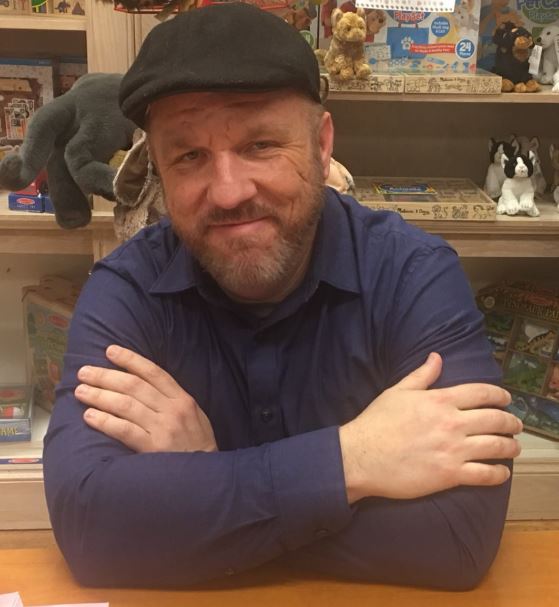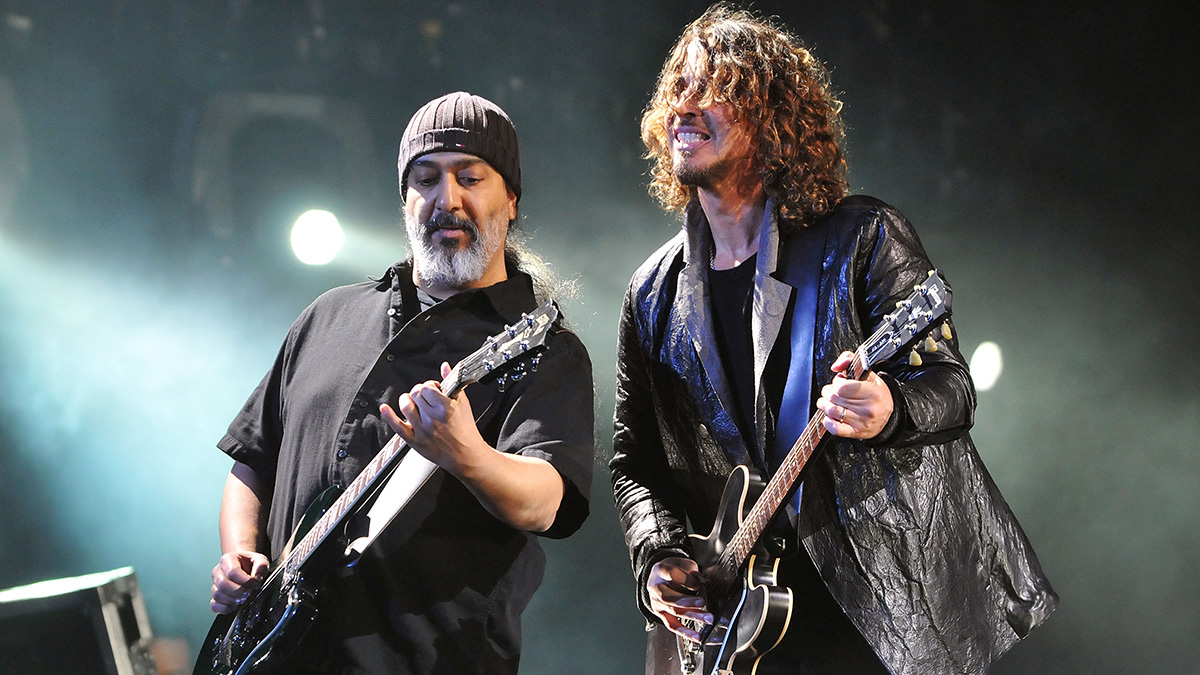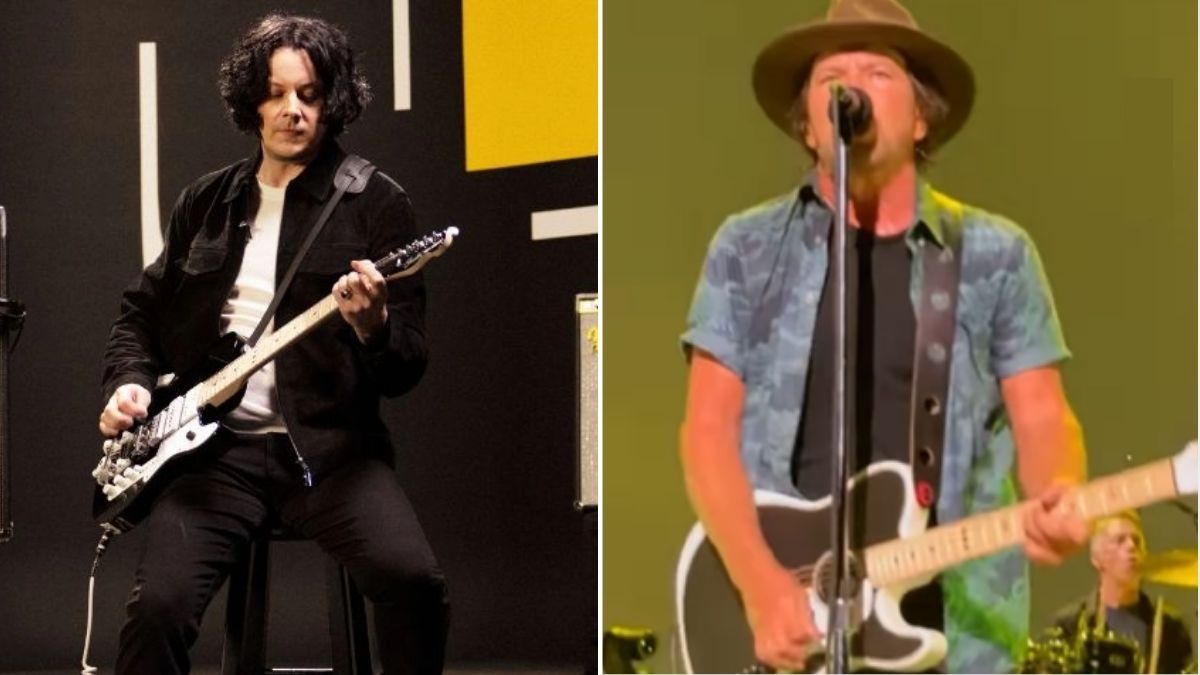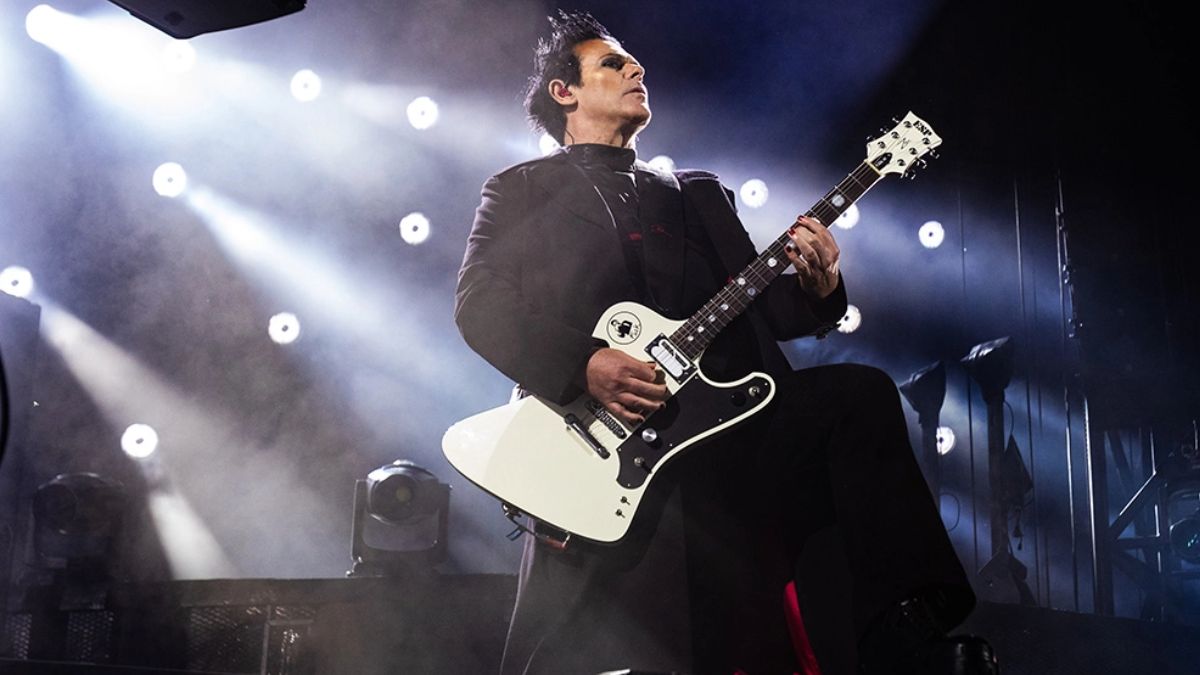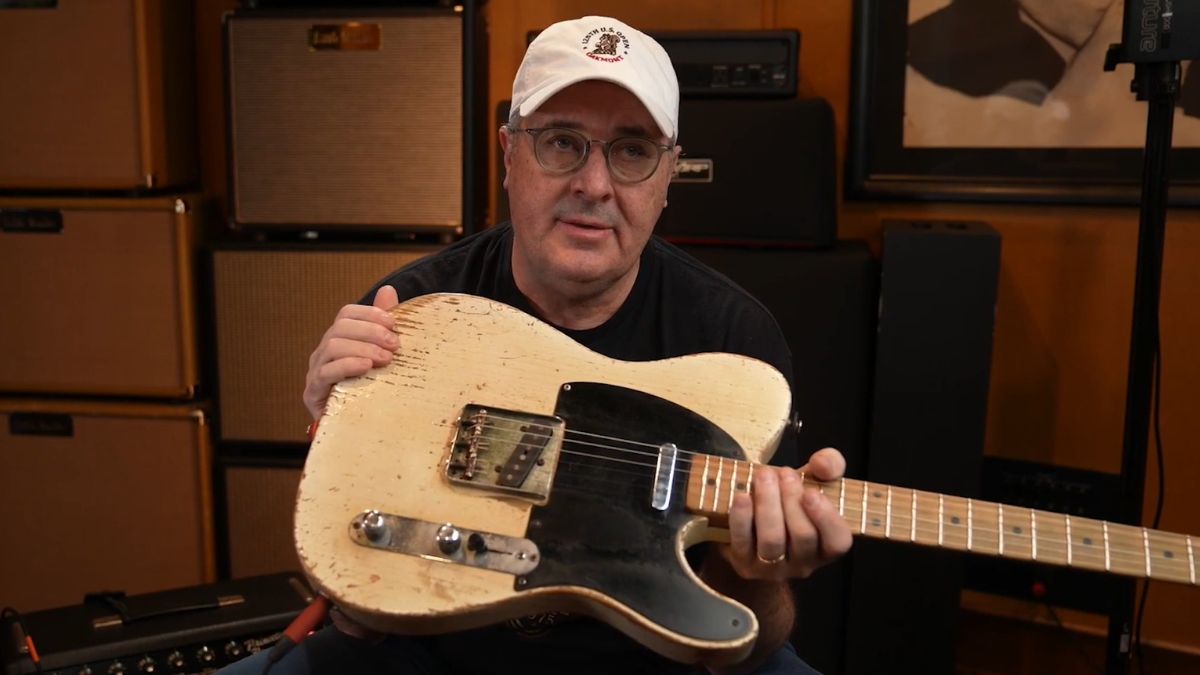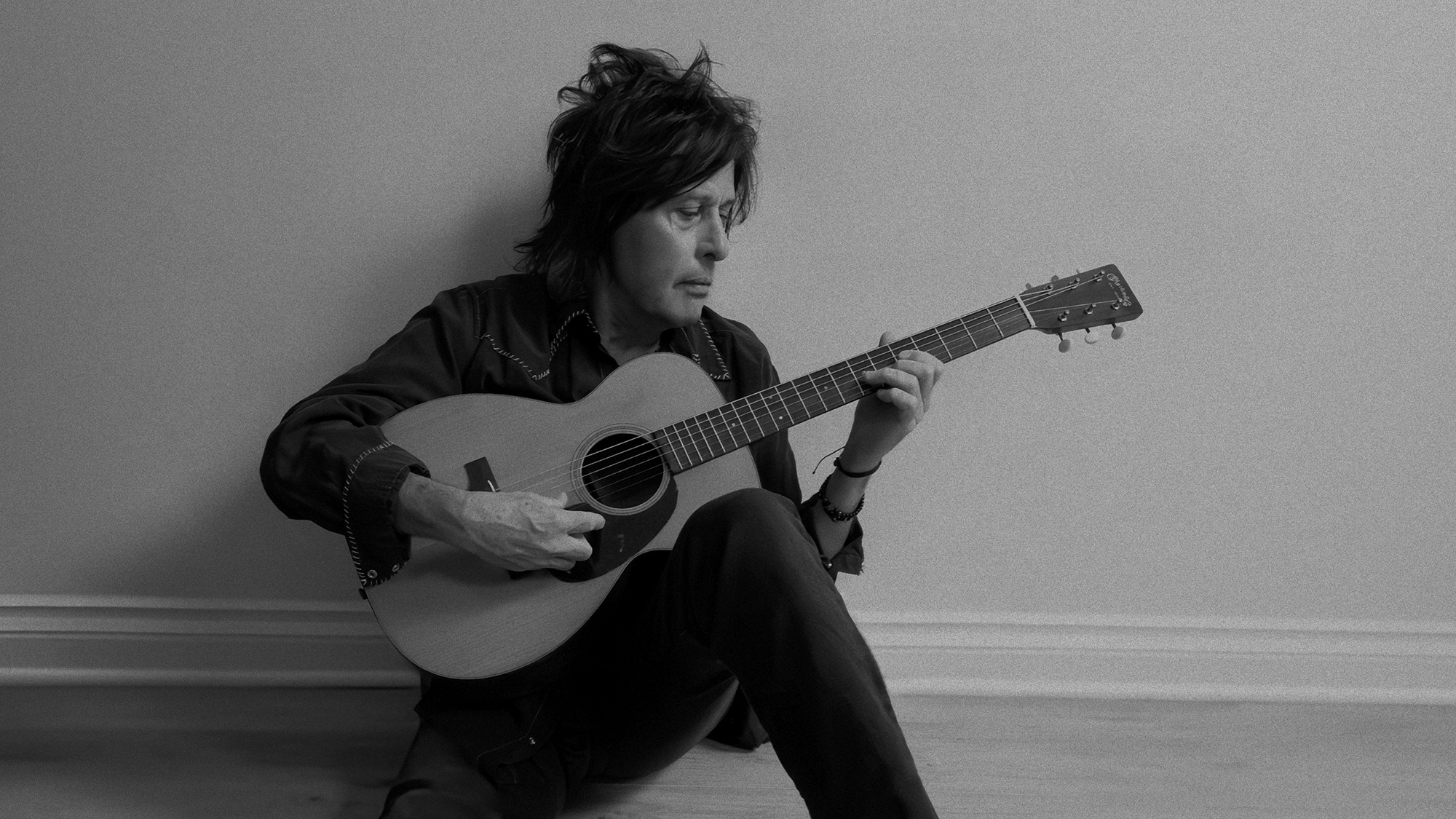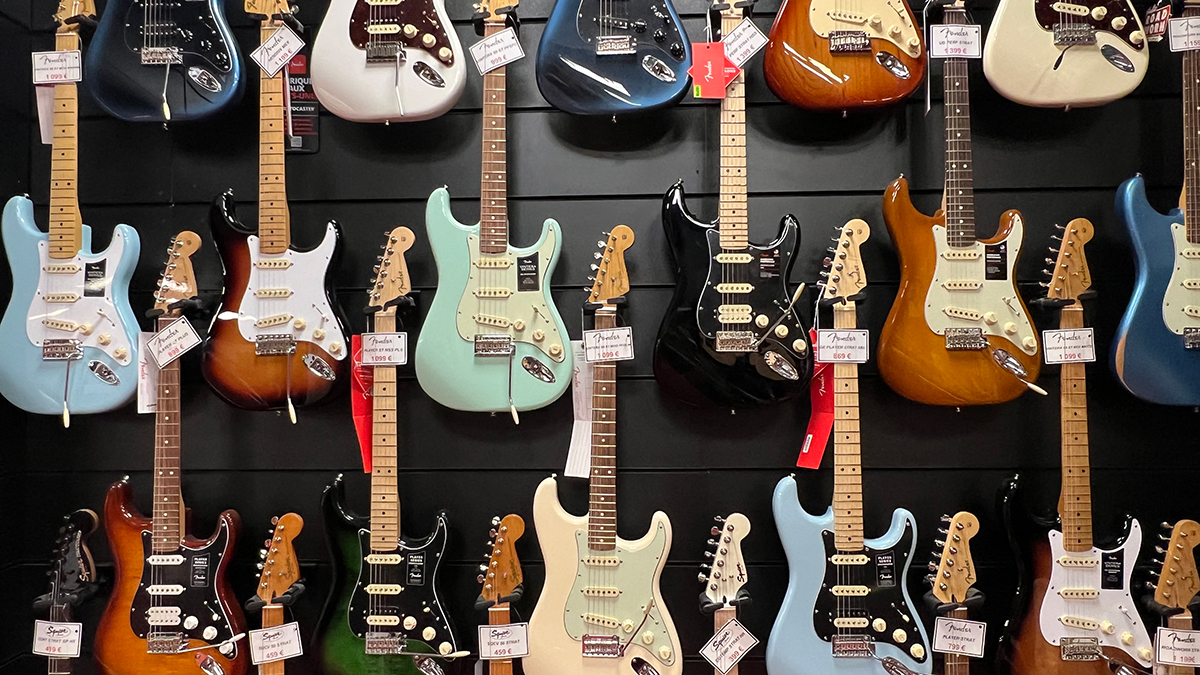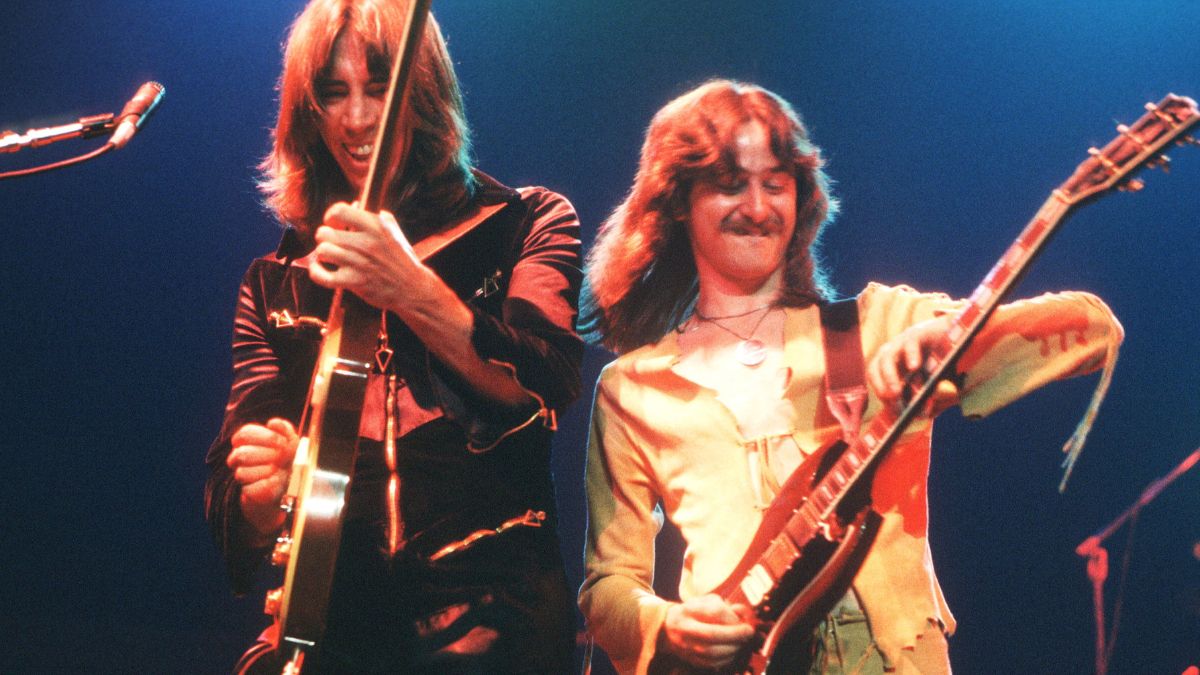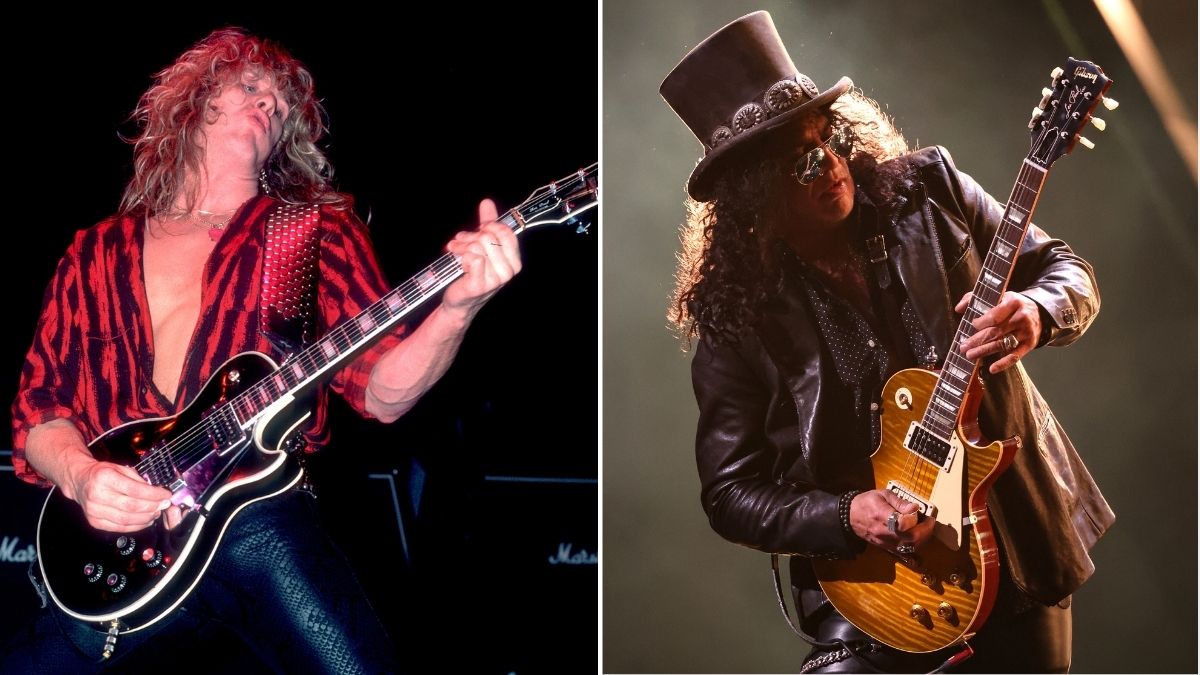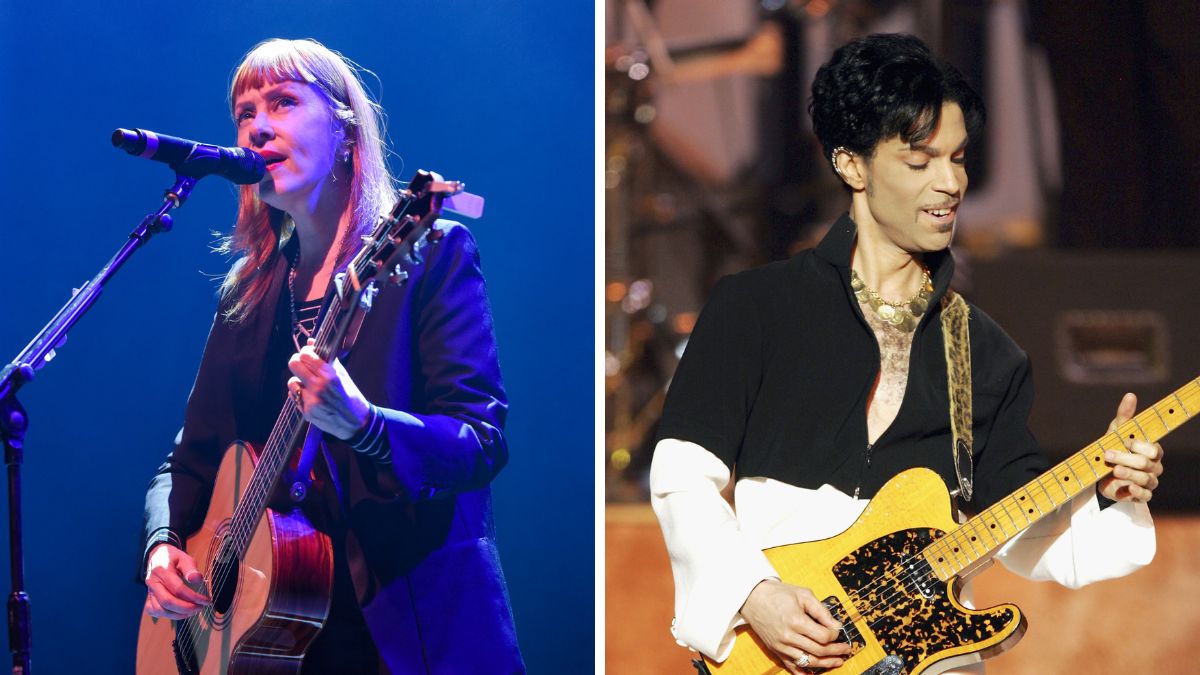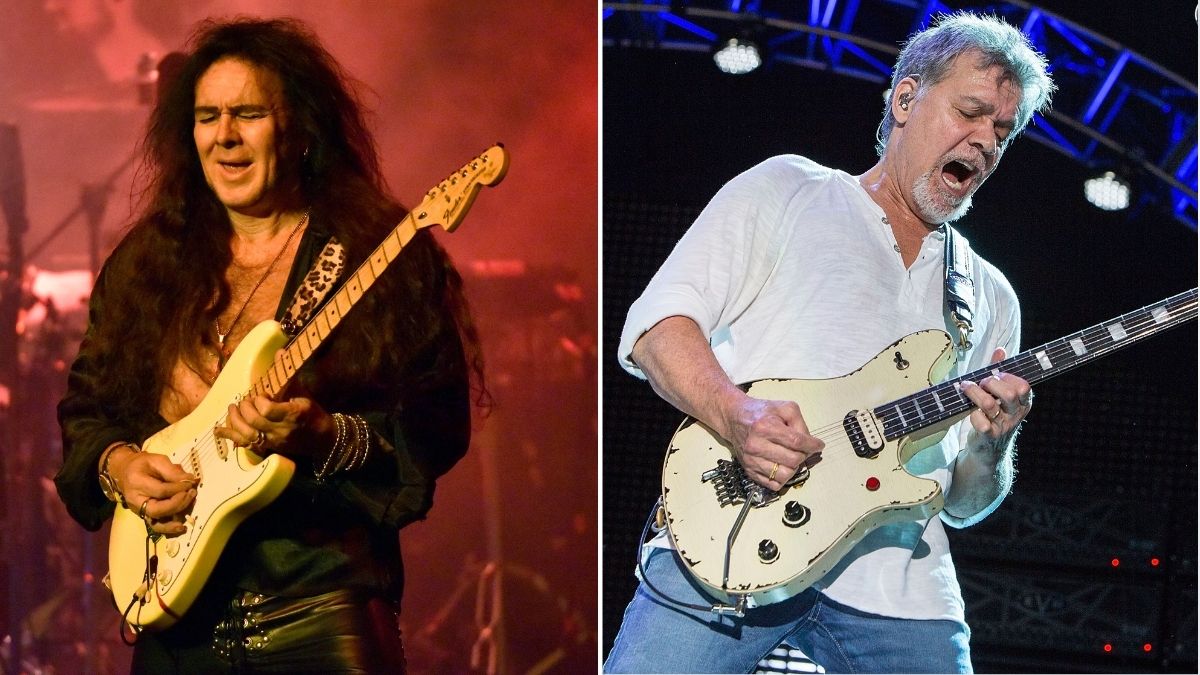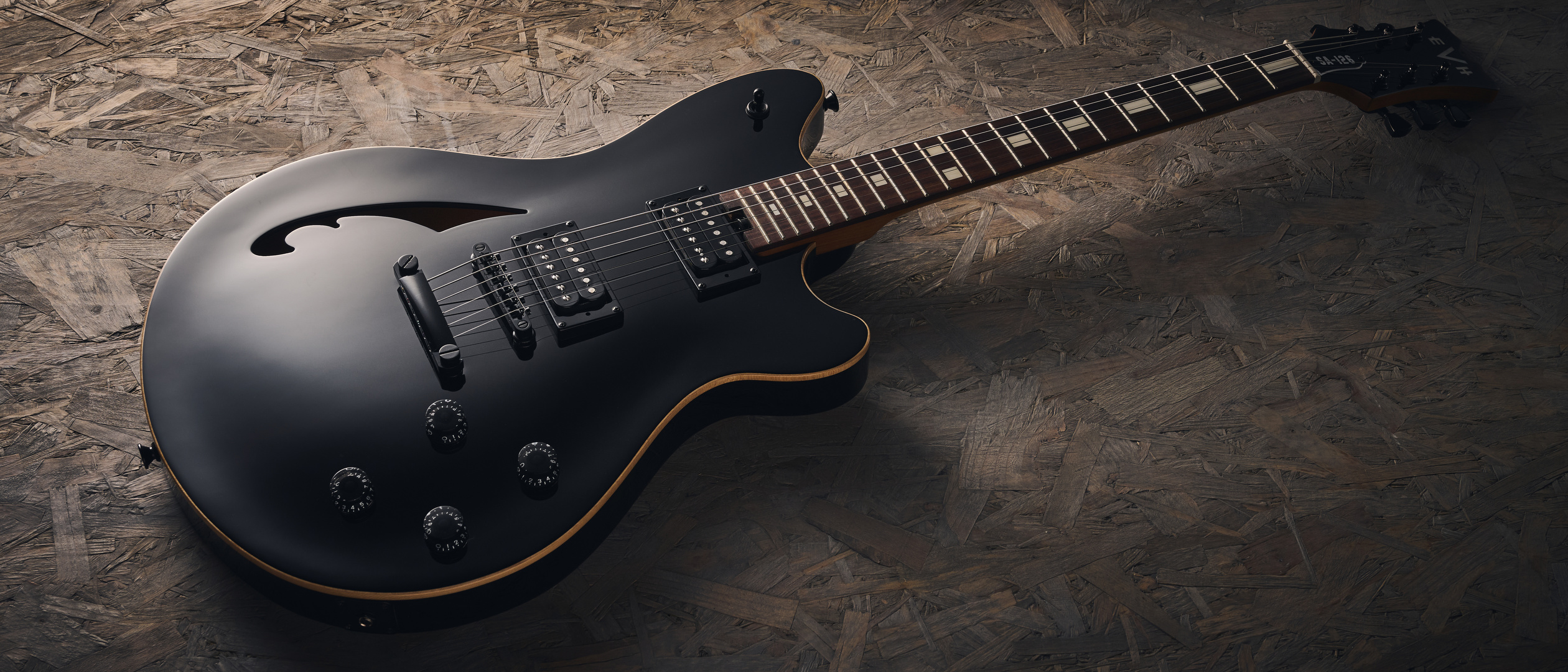Original MTV VJs Alan Hunter and Nina Blackwood Talk New Book, Van Halen, Ozzy and the Eighties
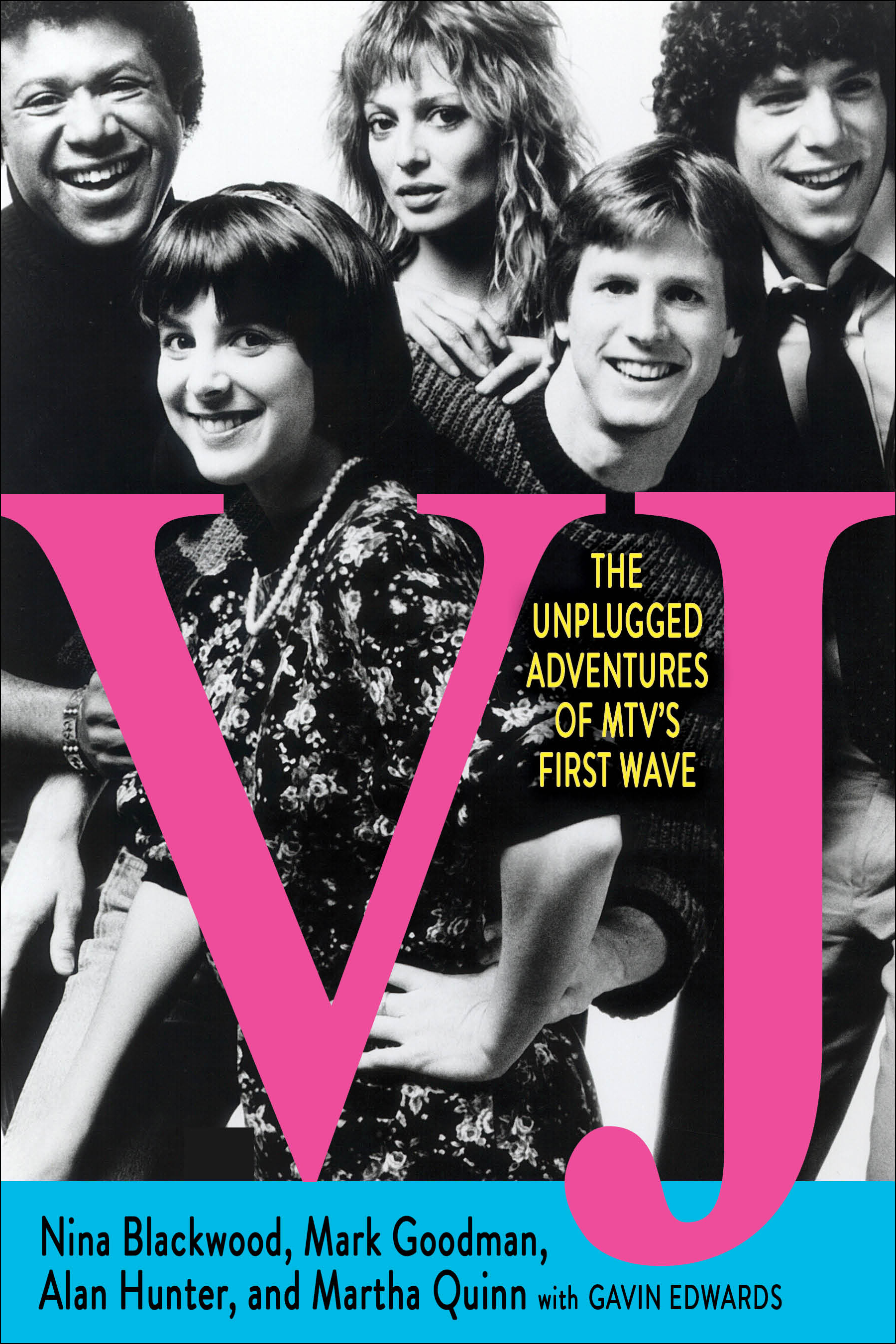
It was 12:01 a.m. August 1, 1981.
The music business was in the toilet when a fledgling channel named MTV hit the airwaves to start the engine again.
Throughout the decade, MTV became one of the biggest things on the planet and revolutionized the music industry with a new medium — music videos.
Viewers would regularly host their own MTV parties, tune in for Friday Night video fights and experience unprecedented musical events such as Live Aid. The MTV phenomenon was so big that Dire Straits guitarist Mark Knopfler referenced the channel, incorporating its "I want my MTV" slogan in the band’s massive 1985 hit, "Money For Nothing.”
Four of the original MTV VJ’s — Alan Hunter, Nina Blackwood, Martha Quinn and Mark Goodman — have written a book about their experiences, VJ: The Unplugged Adventures of MTV’s First Wave.
The book, which is co-written by Gavin Edwards, is a narrative-driven oral history of MTV, complete with behind-the-scenes tales and anecdotes as told through the VJs' own voices (NOTE: JJ Jackson, the fifth original VJ, died in 2004).
From stories on how each VJ landed their job, the channel’s historic launch, the changing dynamic and their eventual departure, the book details the triumphs, pitfalls and everything in between. Today, in addition to acting and producing their own syndicated radio shows and films, the four original VJs can regularly be found on Sirius’ '80s on 8.
Get The Pick Newsletter
All the latest guitar news, interviews, lessons, reviews, deals and more, direct to your inbox!
I recently spoke to Hunter and Blackwood about the book and their days at MTV. They also discussed their favorite guitarists and other projects they’re working on.
GUITAR WORLD: What made you finally decide to write a book about your MTV experiences?
Blackwood: We had originally thought about writing one years ago, but as we were preparing to find a writer, JJ passed away. It was sad because he would have contributed a lot of his own great stories. He was known as “Club Man” from his days at WBCN in Boston and being out every night with those guys [the artists] until dawn.
Let’s discuss a few of the artists you encountered at the time, starting with Van Halen.
Hunter: There are a lot of stories in the book about David Lee Roth. In fact, the book opens with stories about partying with him. Dave really liked to party, but what a great guy he was. Eddie was a little bit more of a recluse. But MTV quickly became the epicenter for all entertainers. Artists would regularly just come in and hang out. We’d see them at parties but always knew we had a job to do. We were friends with them, but in a business way — and the occasional party way, too! [laughs].
Ozzy Osbourne
Hunter: I was the first to interview Ozzy in 1982. I was always a big fan and remember being really well prepared for the interview. I still remember when he and Sharon came walking onto the set and Sharon told me that Ozzy was a little “out of sorts” because he had been taking some cold medicine [laughs].
Do you remember seeing an artist that really blew you away?
Blackwood: I grew up in Cleveland and remember when Jimi Hendrix played there. I really wanted to see him, but my mom wouldn’t let me go because quote, “He does dirty things with his guitar” [laughs]. But I’ll never forget the day Mark Goodman came into the studio.
He was ecstatic and said, “I just saw the second coming of Hendrix last night! This guy will blow you away!” He was just raving about this great guitarist that he had seen. So the next night, I went to see for myself. I may not have gotten to see Hendrix, but I did get to see Stevie Ray Vaughan.
Was there someone you wanted to meet during your time at MTV but never did?
Blackwood: George Harrison. I got to meet Paul [McCartney] and Ringo [Starr] but not George, which was a shame because he was my biggest influence. Not just in music but also in life. His search for spirituality really came through, especially in his solo music.
Part of the book deals with the idea that MTV somehow “ruined” Live Aid. Do you believe that?
Hunter: We jokingly say that. We were the major TV outlet for it and covered it for 17 hours straight. For me to literally stand 20 yards from some of the biggest musical happenings in history, like the reunion of Led Zeppelin, was surreal.
Blackwood:Rolling Stone really went to town on us for that. We were crushed because we were proud of our coverage. We had done our research, had our facts straight and everything was done professionally. The only thing I didn’t like that day was at the end when the director told us to all sway along to Paul McCartney singing “Let It Be." We got nailed for that, but we didn’t have a choice.
Do you have a personal favorite moment from your days at MTV?
Hunter: In terms of my career, the kick off at 12:01 August 1, 1981, was the biggest moment of my life. We couldn’t believe we were there.
Blackwood: The start of it all was the most emotional, unusual and wonderful experience you could imagine. No one knew for sure what was going to happen. It was a gamble for everyone involved.
Had MTV not happened, where do you think you'd be in 2014?
Blackwood: I studied harp classically and would often bring my harp to jam with rock bands at gigs. Playing the harp was always my full-time job in the evening, and I was also acting and hosting some music programs. I imagine I would have continued down that path.
Hunter: I was bound to become an actor. I was actually in a David Bowie video ["Fashion"] before MTV came about. Even though I didn’t have a clue about what it would be like to be a host in the beginning, I think I went down the right road.
In addition to your Sirius radio gig on 80′s on 8, what other projects are you working on?
Hunter: I have a reality show in the works and started the Sidewalk Film Festival in my hometown of Birmingham, Alabama, that recently celebrated its 15th anniversary.
Blackwood: I have a few syndicated programs — Nina Blackwood’s Absolutely 80′s and the more alternative/punk Nina Blackwood’s New Wave Nation. We’re also working on an audio version of the book.
What do you think made the Eighties and MTV so special?
Hunter: I think the world embraces the Eighties 30 years later because it has a certain quality to it. People who lived it have fond memories, and young people today like the innocence about it.
Blackwood: It was a very visual medium. MTV was young and new, so people gravitated toward it. Then there was the fashion, the hair and the makeup. It was a very colorful era that reminds you of happy, carefree moments. But it wasn’t the TV aspect of MTV that made it so great. For us, it was always about the music.
For more information, visit Alan Hunter's Facebook page and Nina Blackwood's Facebook page.
James Wood is a writer, musician and self-proclaimed metalhead who maintains his own website, GoJimmyGo.net. His articles and interviews are written on a variety of topics with passion and humor. You can follow him on Twitter @JimEWood.
James is a guitarist and freelance writer who's interviewed some of the biggest names in music. He is the author of four books and his writing credits include work for Guitar World, AXS and Yahoo! as well as for his hometown newspaper where he writes on a variety of topics with both passion and humor. As a guitarist, he's performed everywhere from local bars and nightclubs to some of the biggest stages in front of thousands of music fans.
Industry expert and YouTuber Adam Saunders launches new books to break down the barriers of music theory to make songwriting simple
“He scoured the globe to find these guitars. I had given many away or sold them through the years, but he tracked them down”: A 1,000-page book showcasing Steve Vai’s iconic guitars has been announced – and it will be joined by a super-limited Ibanez JEM
